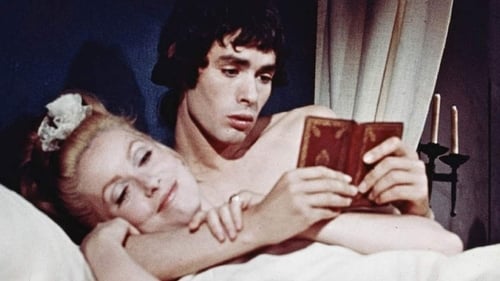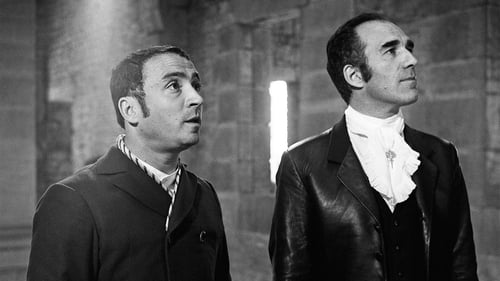
(Voice)
The film follows the adventures of Baron Munchausen, who is prompted to travel to the moon by his cousin Sirius, an astrologer convinced that it is inhabited by an ancient race called the Selenites. The Selentites incidentally possess the secret of immortality. The Baron takes up his cousin's offer and travels to the moon using a tall masted ship pulled by three hot air balloons and he is aided by his super-ability friends (who are from the prequel to this film, The Fabulous Adventures of the Legendary Baron Munchausen). When they reach the moon, they are initially placed in jeopardy as their craft lands in a crater and they fall into a subterranean sea inhabited by monsters...

Maxime

'Syndicat'
Zineb, filha de um operário e

Angelo
Architect Dumas dies from a bullet of his own gun in front of his house. The police suspect his young Swedish wife Catherine and her English lover Tom Hastings. After numerous interrogations, in which they entangle themselves in contradictions, they try to flee, but are soon both caught and brought to trial, he in England, she in France. Only when Catherine keeps on proclaiming her innocence, superintendent Corbier finally considers believing her.

L'aubergiste
Master Zacharius, the village watchmaker, dreams of giving a soul to the automatons he manufactures. A mysterious young man bursts in and seems to want to charm the watchmaker's daughter. After his passage, all the clocks go haywire, causing trouble. How far is Zacharius willing to go to get what he wants?

Nicia

le chef des eunuques

Father Ubu, grotesque king and symbol of the tyranny of power in Ubu king, decides to become a slave to acquire real power. This is the first sequel to "Ubu roi" (1965) directed by Averty.

Basile
Set in 18th century France, a naive 17-year-old orphan named Benjamin is taken in by his wealthy aunt, the Countess de Valandry. There, he is seduced by a variety of women, including a few flirtatious maidservants and neighboring countesses who all want to be Benjamin's "first".

Pierrot
This telefilm in black and white is diffused on the first French chain the November 6th 1965. It undoubtedly remains the most known adaptation of the Dom Juan of Molière.




